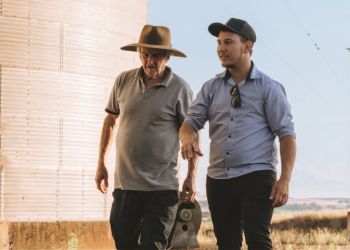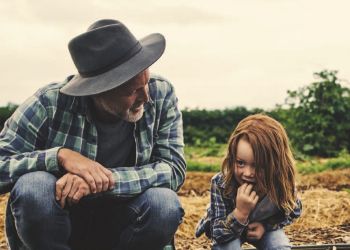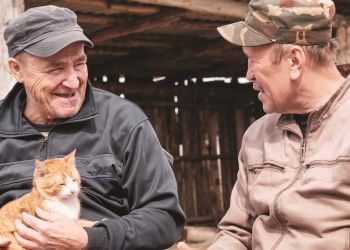By Paul Biedrzycki, MPH, MBA, CIH, Director of Disease Control and Environmental Health, City of Milwaukee Health Department
Regardless of the current political debates on the existence of climate change, there is mounting and compelling scientific evidence that not only indicates climate change is occurring, but also predicts significant health risks, especially for vulnerable populations. Furthermore, its cross-cutting relevance to public health preparedness, infectious disease epidemiology, and environmental health provides ample opportunity for integration and innovation of practice at the local public health department level.
 NACCHO’s Climate Change Workgroup is a prime example of public health officials coming together to seek viable solutions and share resources about this critical issue. At the group’s most recent May 2016 meeting, pictured on the right, in Washington, D.C., members reviewed workgroup goals; heard updates on climate and health science by federal experts; examined several local case studies; and discussed future strategies to develop, implement, and sustain local climate change activities. Suggestions included:
NACCHO’s Climate Change Workgroup is a prime example of public health officials coming together to seek viable solutions and share resources about this critical issue. At the group’s most recent May 2016 meeting, pictured on the right, in Washington, D.C., members reviewed workgroup goals; heard updates on climate and health science by federal experts; examined several local case studies; and discussed future strategies to develop, implement, and sustain local climate change activities. Suggestions included:
- Enhancing community awareness by strengthening alliances with private healthcare professionals;
- Improving communications between public health practitioners and climate scientists; and
- Enhancing partnerships by leveraging new networks and relationships.
The CDC’s Climate and Health Program has identified several categories of health-related effects associated with climate effects including increases in frequency and severity of extreme weather events, vector- borne disease incidence, and water and air pollution. Each of these factors speaks to the need for increased funding to support and expand the capacity of county and city environmental health programs within local health departments. Indeed, environmental health programs play a significant part in community outreach, collaboration across various government regulatory agencies, and the development of effective tools to prepare, respond to, and mitigate the impact of climate and health effects.
Despite the growing urgency of health and other impending risks, local health departments ― specifically environmental health programs ― are faced with several challenges and gaps limiting their ability to plan and implement essential climate change strategies. Most notably, capacity is lacking in areas of workforce development and training. In addition, insufficient funding limits opportunities for increased local preparedness resources to ensure effective response to a myriad of climate change scenarios. Moreover, the absence of reliable federal and state funding significantly slows coordination across environmental regulatory and health agencies in the public and the nonprofit sectors. Broad policy change and implementation around issues including climate change require strategic pre-planning and broad diverse stakeholder consensus. The absence of funding to make such cross-sector dialogue possible severely impedes reaching cost-effective and mutually agreeable outcomes that can strengthen overall community resilience.
In response to funding uncertainty, members of the NACCHO Climate Change Workgroup are continuing their progress in protecting their communities against the adverse effects of climate change. In the past year, they initiated several projects that highlight ways in which climate health activities can be woven into public health programs with little or no direct funding and resources. Workgroup members leading these efforts stress that successful implementation requires significant leadership, innovative partnerships, and unwavering motivation from all stakeholders involved: factors that further attest that local health departments are not only capable, but effective in spearheading community-led, transformative processes to address the very real threats of climate change. LHDs interested in implementing similar initiatives should use NACCHO’s fact sheet, 12 Steps to Operationalize Climate Change in a Local Health Department, as their guide to getting started and tracking progress.
The Climate Change Workgroup also relies on and encourages using free resources and toolkits from NACCHO, CDC, NOAA, NIH, and the EPA to create decisive climate change strategies at the local and state levels. One especially noteworthy example is the US Global Change Research Program’s 2016 Report, “The Impacts of Climate Change on Human Health in the United States: A Scientific Assessment.” The report outlines critical public health metrics associated with climate effects and connects climate science to discernible community health outcomes. Furthermore, it effectively serves as the current framework and blueprint for environmental health actions, and supports the rationale in considering climate change as both a science and public health threat.
As climate science continues to evolve and provide more clarity on the complexity of human interaction with our planet’s ecosystem, it is up to public health professionals and environmental health experts to lead the way in taking action now. They must band together to strengthen advocacy, outreach, preparedness, and response through authentic cross-sector and local engagement to address climate change in the context of community resilience. Consider joining the NACCHO Climate Change Workgroup in paving the way forward!
For more information visit the NACCHO Climate Change Webpage or contact NACCHO staff Climate Change Lead, Jennifer Li or NACCHO Climate Change Workgroup Chair, Kathleen Karle.







